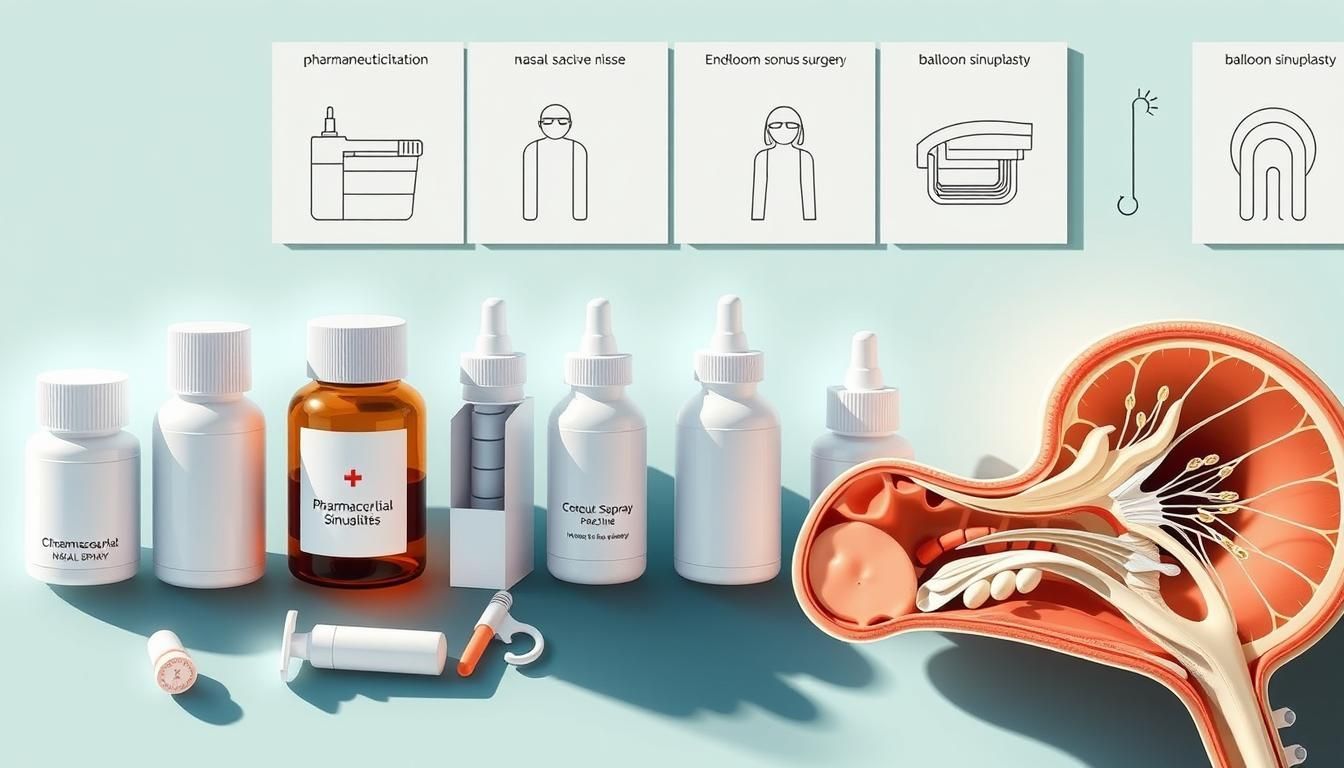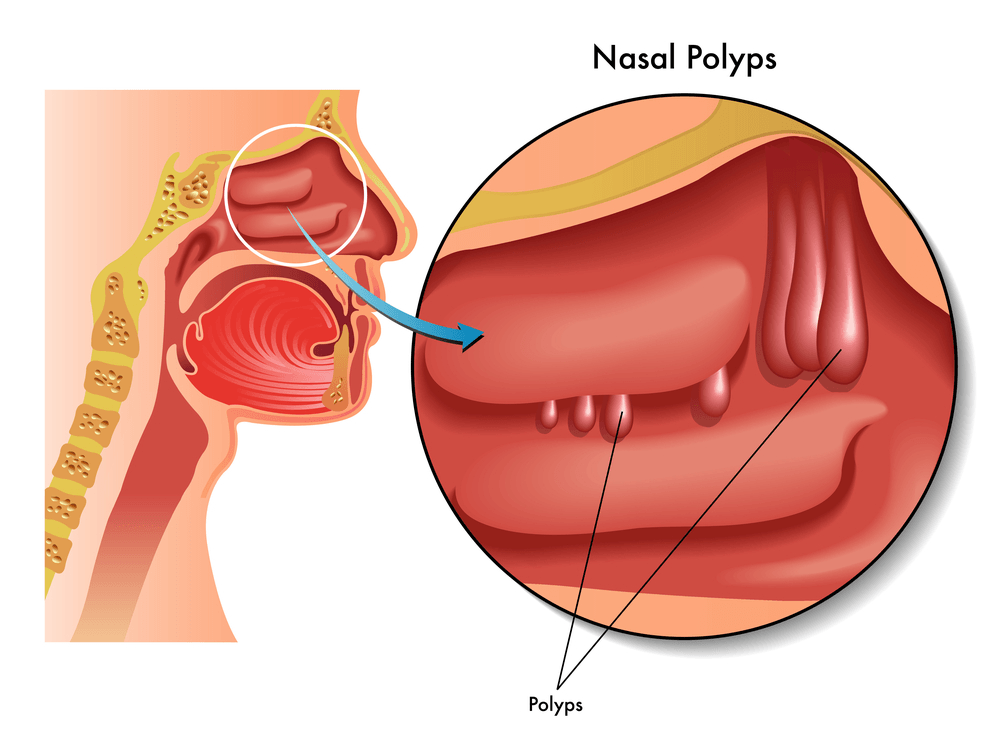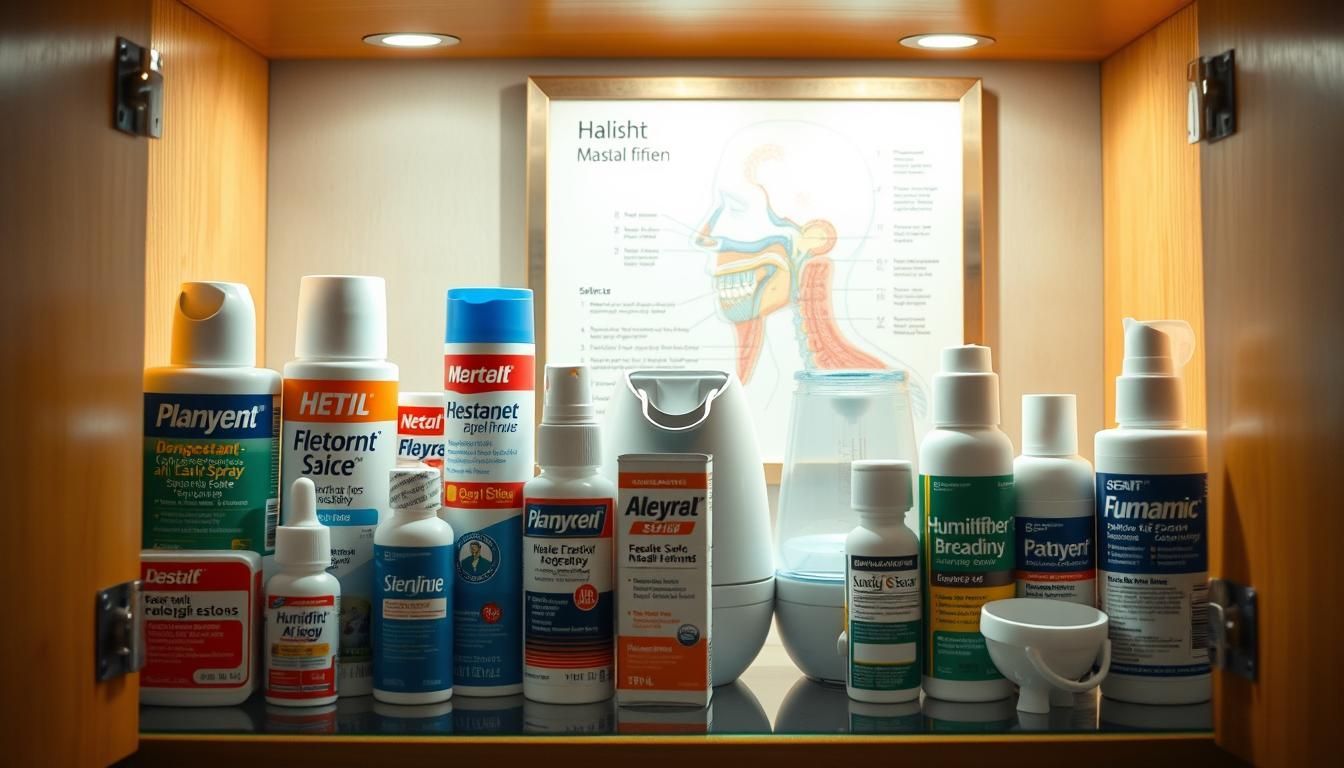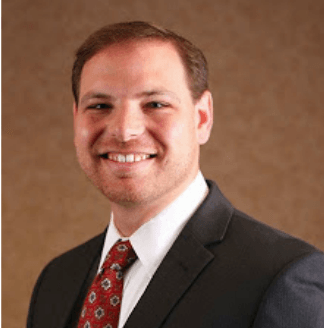Living with Chronic Sinusitis? Here's What You Can Do
Living with Chronic Sinusitis? Here's What You Can Do

Imagine waking up every morning with pressure behind your eyes and constant congestion. If this is your daily life, you're not alone.
Millions of Americans deal with persistent sinus problems. These issues can make simple tasks like breathing feel like a challenge.
Long-term sinus inflammation does more than just make you uncomfortable. It disrupts sleep, affects concentration, and leaves you feeling tired all day. But, there are effective management strategies to help you feel better.
In this guide, we'll look at ways to manage your symptoms. We'll cover the causes, medical treatments, and natural remedies. We'll also talk about chronic sinusitis treatment options and when surgery might be needed.
Key Takeaways
- Persistent sinus inflammation affects millions of Americans and significantly impacts daily life quality
- Multiple treatment approaches exist, from medical interventions to natural home remedies
- Understanding root causes helps develop more effective long-term management strategies
- Surgery may be necessary when conservative treatments fail to provide adequate relief
- Building a personalized management plan improves outcomes and prevents symptom recurrence
- Professional medical guidance is essential for developing the most appropriate treatment approach
Understanding What Chronic Sinusitis Really Means
Chronic sinusitis is more than just occasional congestion. It's a complex condition that affects your daily life in many ways. Understanding your condition is key to finding effective treatments and relief.
Unlike short-term sinus infections, chronic sinusitis is a long-term challenge. Many patients struggle for months or years without the right diagnosis. Knowing what makes this condition unique helps us find better ways to manage it.
Defining Chronic vs. Acute Sinusitis
Chronic and acute sinusitis differ in duration and severity. Acute sinusitis lasts 7 to 10 days and often clears up with simple treatments. Chronic sinusitis, on the other hand, lasts more than 12 weeks.
Chronic cases can have symptoms all year. The inflammation in your sinuses becomes constant, making it hard to break the cycle without medical help.
Chronic cases usually affect more than one sinus cavity. Unlike acute infections, which might target just one area, chronic sinusitis causes widespread inflammation.
How Chronic Sinusitis Develops Over Time
Chronic sinusitis doesn't start overnight. It often begins with repeated acute infections. These infections can leave behind persistent inflammation in your sinus tissues.
The process is gradual. Initial infections may seem to clear up, but the inflammation stays. Over time, this leads to structural changes in your sinuses, making future infections more likely.
Many patients feel like they're dealing with one long infection. In reality, it's a series of overlapping episodes of inflammation. This is what causes the persistent symptoms of chronic sinusitis.
Common Underlying Causes We Should Know About
Several factors contribute to chronic sinus inflammation. Structural abnormalities like deviated septums or nasal polyps can block drainage. These blockages trap mucus and bacteria, leading to persistent infection.
Allergies are a big factor in many cases. Environmental allergens cause ongoing inflammation, making your sinuses more prone to infection. We also see patients with immune system issues that make fighting off infections harder.
Environmental factors like pollution, cigarette smoke, or workplace irritants can also cause chronic inflammation. Even dental infections can spread to your sinuses, requiring specialized treatment.
Finding the specific causes of your condition is key to effective treatment. Each patient's situation is unique, which is why we take a detailed approach to diagnosis and care.
Recognizing the Signs and Symptoms in Your Daily Life
Understanding your body's signals is key to knowing if you have a cold or something more serious. If symptoms last longer than usual, it's time to take notice. Chronic sinusitis causes ongoing discomfort that impacts your daily life.
Physical Symptoms That Persist for Months
One clear sign of chronic sinusitis is constant nasal congestion that doesn't get better with over-the-counter treatments. You might see thick, yellow or green nasal discharge for weeks or months. This is different from the clear discharge of a cold.
Facial pain and pressure around your eyes, cheeks, and forehead become constant. Many feel a heavy, aching sensation that gets worse when bending forward. Your sense of smell and taste may also decrease, making food less enjoyable.
Persistent postnasal drip irritates your throat and leads to frequent coughing, often at night. Decongestant sprays only offer temporary relief. These symptoms go through cycles of getting better and worse without a clear pattern of recovery.
How Chronic Sinusitis Affects Your Quality of Life
Sleep problems arise when breathing issues keep you awake. You might need multiple pillows or wake up often. This chronic fatigue makes it hard to focus and be productive during the day.
Social events can become uncomfortable due to coughing, throat clearing, or nasal congestion. Many people avoid activities they once enjoyed. The constant search for relief can be mentally draining.
Work performance often suffers due to decreased focus and frequent sick days. The ongoing inflammation makes your body constantly fight infection, leaving you feeling drained and irritable.
When Symptoms Indicate a Serious Problem
Certain warning signs need immediate medical attention and shouldn't be ignored. Severe headaches that worsen rapidly or don't respond to pain medication may indicate complications. High fever above 101°F (38.3°C) with sinus symptoms also needs prompt evaluation.
Vision changes, such as double vision, decreased vision, or eye swelling, signal a possible infection spread. Neck stiffness with severe headache could indicate serious complications like meningitis. These symptoms require emergency medical care.
Persistent symptoms that worsen despite treatment, or new symptoms that develop suddenly, warrant immediate consultation with healthcare providers. Don't wait when your instincts tell you something isn't right – early intervention prevents more serious complications from developing.
Getting the Right Diagnosis from Your Healthcare Provider
Getting an accurate diagnosis is key to finding the right sinus infection remedies for you. Chronic sinusitis can be tricky, and a thorough medical check is needed. This usually starts with your primary care doctor, who will look at your medical history and do an initial check-up.
Your doctor will ask you lots of questions about your symptoms, how long they've lasted, and any patterns. They'll also want to know about any treatments you've tried before and any allergies or other health issues. This helps them get a full picture of your sinus health.
Essential Tests and Examinations
Several important tests help doctors understand your sinuses. A physical check includes looking at your nasal passages, throat, and lymph nodes for signs of infection or swelling. They'll look for nasal polyps, swelling, or discharge that might show chronic sinusitis.
Common tests include:
- Nasal endoscopy - A thin, flexible camera looks at your nasal passages and sinus openings
- Allergy testing - Finds out what might be causing your sinus problems
- Bacterial cultures - Finds out if specific bacteria are causing your infection
- Blood tests - Checks for immune system disorders or other conditions
These tests give valuable info for treatment decisions. Keeping a symptom diary before your appointment can help your doctor understand your condition better.
Understanding CT Scans and Endoscopy Results
CT scans give detailed images of your sinus structures, showing blockages, polyps, or other problems. These scans show areas that can't be seen during a regular check-up. Your doctor will explain what the images show about your condition.
Nasal endoscopy lets doctors see your nasal passages and sinus openings directly. This is usually done in the office and shows inflammation, polyps, or structural issues in real-time. The results help decide which sinus infection remedies will work best for you.
Understanding these test results helps you make informed decisions about your treatment. Don't be afraid to ask questions about what the findings mean for your care.
Working with ENT Specialists
ENT specialists have the training to handle complex sinus conditions. We often suggest seeing an ENT doctor if symptoms don't improve with initial treatment or if complications arise. These specialists can offer specialized procedures and advanced treatments.
Preparing for your ENT appointment is important. Bring all previous test results, a list of medications you've tried, and your symptom diary. This info helps the specialist understand your history and recommend the right sinus infection remedies.
ENT specialists can do more detailed exams and offer treatments like balloon sinuplasty or endoscopic surgery when needed. They work with your primary care doctor to ensure you get the best care throughout your treatment.
Chronic Sinusitis Treatment Options That Actually Work
We offer proven treatments to help with chronic sinusitis symptoms. The right mix of therapies depends on your condition and causes. Our goal is to reduce inflammation, clear blockages, and prevent future problems.
Everyone reacts differently to treatment. We work with you to find the best combination. Some see big improvements with one treatment, while others need several. The aim is to get your sinuses working right and improve your life.
When and How Long to Use Antibiotics
Antibiotic therapy for sinusitis needs careful thought. Not all chronic cases have bacterial infections. We use antibiotics only when we find bacterial growth through tests.
For chronic sinusitis, antibiotics are used for 3-4 weeks. This longer time helps clear any bacteria causing your symptoms.
We often use amoxicillin-clavulanate, doxycycline, or fluoroquinolones. We watch how you respond and might change the medication if needed. Remember, antibiotics only fight bacterial infections, not viruses or inflammation.
Long-term Management with Nasal Steroids
Steroid nasal sprays are key for chronic sinus inflammation. They reduce swelling and improve drainage without oral steroid side effects. You can use them safely for months or years.
Using steroid nasal sprays correctly is important. We teach you to spray toward your ear, not straight up. Avoid blowing your nose right after to let the spray work.
Popular options include fluticasone, budesonide, and mometasone. It takes 1-2 weeks to see full effects. We often use them with other treatments, like during allergy seasons.
Saline Irrigation Benefits and Techniques
Saline irrigation is very effective for many patients. It uses salt water to clean your sinuses, removing irritants and reducing inflammation. It's safe and can be used as often as needed.
You can use several methods for saline irrigation:
- Neti pots - Traditional ceramic or plastic pots that pour solution through one nostril
- Squeeze bottles - Plastic bottles that provide gentle pressure for better flow
- Electric irrigators - Powered devices that deliver consistent pressure and volume
- Saline packets - Pre-measured salt mixtures that ensure proper concentration
Using the right salt concentration and technique is key. We recommend distilled or boiled water to avoid bacteria. Always lean forward over a sink and breathe through your mouth during irrigation to avoid water going down your throat.
Anti-inflammatory Medications and Their Role
Anti-inflammatory medications are vital for managing chronic sinusitis. We use oral and topical treatments based on your needs. They help reduce swelling and blockages in your sinuses.
Oral anti-inflammatories like ibuprofen or naproxen help during flare-ups. But we're careful about long-term use due to side effects. Short courses of oral steroids may be needed for severe inflammation that doesn't respond to other treatments.
Topical anti-inflammatories work directly in your nasal passages with fewer side effects. This includes steroid nasal sprays and antihistamine nasal sprays for allergies. We often use different anti-inflammatory treatments together for the best results.
Step-by-Step Home Remedies and Natural Sinus Infection Remedies
We want to help you with effective home treatments that work with your doctor's care. These natural sinus infection remedies help your body heal. They can make you feel better and more comfortable every day.
Home remedies are gentle but powerful for managing chronic sinus inflammation. We'll show you methods that thousands of people have found helpful. These methods help reduce inflammation, improve drainage, and support your sinuses.
How to Set Up Effective Steam Therapy and Humidification
Steam therapy is a top natural treatment for sinus relief. We'll guide you through two effective methods for quick comfort and healing.
The bowl method is great for targeted relief. Fill a large bowl with hot water and add eucalyptus oil if you like. Lean over the bowl, cover your head with a towel, and breathe deeply for 10-15 minutes.
Your shower can also be a steam therapy tool. Run hot water to create steam, then stay in the steamy environment for 10-20 minutes. This is best before bed to help you sleep better.
Keeping your home's humidity right is key for long-term sinus health. Aim for 30-50% humidity in your living space. Use a humidifier in your bedroom and main areas. Clean it often to avoid mold and bacteria.
Achieving Nasal Congestion Relief Through Diet and Hydration
Your diet is important for managing sinus inflammation naturally. We suggest eating foods that fight inflammation and reduce sinus irritation.
Turmeric is full of compounds that fight inflammation. Add it to soups, teas, or smoothies. Ginger also helps and can be enjoyed as tea or in meals for nasal congestion relief.
Omega-3 foods like salmon and walnuts reduce inflammation. Eat these foods at least twice a week. Citrus fruits give you vitamin C and enzymes that boost your immune system.
Drinking plenty of water keeps mucus thin and easy to drain. Aim for 8-10 glasses a day, more during flare-ups. Warm liquids like herbal teas and broths also offer comfort and steam benefits.
Using Essential Oils and Natural Anti-inflammatories Safely
Essential oils can provide strong relief when used right. We'll teach you how to use them safely to avoid irritation and get the most benefits.
Eucalyptus oil is great for decongesting. Always dilute essential oils first. Mix 2-3 drops with a carrier oil like coconut or olive oil. Apply it to your chest or add to steam therapy.
Tea tree oil has antimicrobial properties that help your sinuses. Use the same dilution ratio and apply to the outside of your nostrils. Never apply undiluted essential oils directly to skin or mucous membranes.
Peppermint oil can give you instant relief. Add one drop to hot water for steam inhalation, or dilute and apply to your temples and forehead.
Optimizing Sleep Position and Environmental Changes
Your sleep environment and position affect your sinuses. We recommend changes to help you sleep better and wake up with less congestion.
Elevating your head while sleeping helps sinus drainage. Use an extra pillow or wedge to raise your head 6-8 inches. This stops mucus from pooling in your sinuses.
Air purifiers remove allergens and irritants that cause sinus problems. Use a HEPA filter unit in your bedroom for cleaner air. Replace filters often for best results.
Wash your bedding in hot water weekly to get rid of dust mites and allergens. Use hypoallergenic pillow covers and mattress protectors. Wash pillows monthly or replace them every 6-12 months.
Avoid bedroom allergens and irritants. Keep windows closed during high pollen days, avoid strong fragrances and cleaning products, and keep your bedroom smoke-free. These simple steps help create a healing environment.
Temperature control is also important for sinus comfort. Keep your bedroom cool but not cold. Aim for a comfortable range of 65-70°F for most people with chronic sinus issues.
When Conservative Treatments Aren't Enough: Surgical Options
If months of medicine and home remedies don't help, surgery might be next. We know choosing surgery is big, but new sinus surgery methods work well. They help those who didn't get better with other treatments.
Surgery is needed when sinuses stay blocked after trying medicine. We suggest surgery when you've tried antibiotics, nasal sprays, and more for months. Your life should be better than just dealing with symptoms.
Functional Endoscopic Sinus Surgery Explained
Functional endoscopic sinus surgery is our top choice for chronic sinusitis. It's done through your nostrils, so you won't have visible scars. A thin, flexible endoscope with a camera lets us see inside your sinuses.
We remove diseased tissue, polyps, and blockages during surgery. Our aim is to make your sinuses work right again. We also make passages wider and improve ventilation.
The surgery takes one to three hours, depending on your sinuses. Most patients go home the same day. Some might stay overnight. General anesthesia makes sure you're comfortable.
Balloon Sinuplasty: A Less Invasive Alternative
Balloon sinuplasty is a gentler option for some. It's like angioplasty for your sinuses. We use a small balloon to widen blocked passages.
This method keeps more of your natural tissue than traditional surgery. It's often done with local anesthesia. The procedure takes about 45 minutes to an hour.
Not everyone can have balloon sinuplasty. We check your anatomy and disease extent to decide. Those with big polyps or severe problems might need traditional endoscopic sinus surgery.
Understanding Risks and Recovery Times
Every surgery has risks we want you to know. Common worries include bleeding, infection, and changes in smell or taste. But serious problems are rare with skilled surgeons.
Recovery times differ. Balloon sinuplasty patients usually get back to normal in one to two weeks. Endoscopic surgery takes two to four weeks, but you'll feel better in the first week.
We'll give you detailed instructions for after surgery. Follow these to heal well and avoid problems.
How to Prepare for Endoscopic Sinus Surgery
Getting ready for surgery is key for success and recovery. We'll check your medicines and ask you to stop some, like blood thinners, a week before. Don't stop any medicines without our okay.
Have someone drive you home and stay with you for 24 hours. You'll need saline rinse supplies for recovery. We'll tell you what you need.
Be realistic about how soon you'll feel better. Some notice relief quickly, but full healing takes months. We'll check on you regularly to see how you're doing.
Creating Your Long-term Management Plan for Chronic Sinus Inflammation
Managing chronic sinus inflammation requires a detailed plan. It's not just about treating symptoms when they happen. You need a proactive strategy that meets your daily needs and finds what triggers your symptoms. Working with healthcare professionals who understand your condition is also key.
Success in managing chronic sinus inflammation comes from being consistent and personal. What works for one person might not work for another. So, it's important to work with your healthcare team to create a plan that fits your needs. This way, your plan can change as your condition does.
Building Your Daily Sinus Care Routine
Starting your day with saline nasal irrigation is a good first step. Use a neti pot or squeeze bottle to clear mucus and reduce inflammation. This helps get your sinuses ready for the day.
It's also important to stick to your medication schedule. Use nasal corticosteroid sprays every morning after irrigation. This helps the medication work best when your nasal passages are clean and moist.
Don't forget about the environment in your daily routine. Keep humidity levels between 30-50% in your home with a humidifier. Also, keep your sleeping area clean and dust-free. Using air purifiers can help reduce airborne irritants that can trigger symptoms.
"The most successful patients are those who make sinus care a non-negotiable part of their daily routine, just like brushing their teeth."
Identifying and Avoiding Personal Triggers
Knowing your personal triggers is key to preventing symptoms. Common triggers include pollen, mold, weather changes, stress, certain foods, and environmental irritants like cigarette smoke or strong fragrances.
Keep a trigger diary for at least a month. Record your daily activities, weather, foods, stress levels, and symptom severity. This helps you see patterns that might not be obvious.
Consider getting tested by an allergist to find specific allergens. Once you know your triggers, you can avoid them. This might mean using HEPA filters, avoiding certain foods, or managing stress.
- Monitor local pollen counts and plan outdoor activities wisely
- Identify food sensitivities that may worsen inflammation
- Recognize stress patterns that coincide with symptom flare-ups
- Note weather changes that affect your sinus health
Tracking Your Symptoms and Progress
Tracking your symptoms gives you valuable insights. Use a simple rating system from 1-10 for symptoms like nasal congestion, facial pain, and overall quality of life.
Document your symptoms daily, including severity, duration, and any factors that seem to influence them. Note which treatments provide relief and how long that relief lasts. This information is important for medical appointments and helps your healthcare team make informed decisions.
Many patients find smartphone apps helpful for tracking. Choose one that allows you to record multiple symptoms, medications taken, and environmental factors. Regular review of this data can reveal trends that guide treatment adjustments.
Building a Support System with Healthcare Providers
A strong healthcare team is essential for managing chronic sinus inflammation. Your team should include your primary care physician, an ENT specialist, and possibly an allergist or immunologist depending on your specific needs.
Schedule regular follow-up appointments even when you're feeling well. These visits allow your healthcare providers to monitor your progress, adjust treatments as needed, and catch any complications early. Open communication is essential – never hesitate to contact your healthcare team when symptoms worsen or new concerns arise.
Prepare for appointments by bringing your symptom diary, a list of current medications, and specific questions about your care. This preparation ensures you make the most of your time with healthcare providers and receive the guidance you need.
Remember, managing this condition is often a journey of trial and adjustment. We're committed to working with you to find the best treatments and lifestyle modifications for your quality of life. Your active participation in this process is the key to long-term success.
Knowing When to Seek Immediate Medical Attention
We want to help you know when to get medical help fast. Most chronic sinusitis cases can be treated normally. But, some signs mean you need urgent care. Knowing these signs can save your life.
It's important to know when symptoms are getting worse. We want you to feel okay about getting help when you need it.
Warning Signs That Require Emergency Care
Some symptoms need you to go to the emergency room right away. Severe headache, fever, and neck stiffness could mean meningitis. You need to see a doctor fast, not wait.
Changes in your vision are also a big warning sign. Sudden double vision, blurred sight, or vision loss could mean an eye infection. These problems can get worse fast.
Swelling around your eyes, with pain or vision issues, is an emergency. High fever over 101.3°F and severe facial pain also need quick care.
Changes in how you think or act are urgent. Confusion, trouble thinking, or acting strangely can mean serious problems. These can happen quickly.
Serious Complications We Need to Watch For
It's key to know about possible complications. Meningitis is the most serious and happens when infection reaches your brain and spinal cord.
Brain abscesses are rare but serious. They happen when bacteria infect brain tissue. You'll need hospital care and antibiotics right away.
Orbital cellulitis affects the eye area. It can cause permanent vision loss. This is more common in kids but adults can get it too.
Bone infections in your skull are serious. They happen when sinusitis spreads to bone. These infections are hard to treat and might need surgery.
Blood clots in brain vessels are rare but serious. They can cause stroke-like symptoms. You need emergency care fast.
Building a Strong Relationship with Your Healthcare Team
Preventing emergencies starts with good communication with your doctors. Regular check-ups help your doctors keep an eye on you. They can adjust treatments before things get worse.
It's good to have both a primary care doctor and an ENT specialist. Having multiple doctors means you can get help when you need it.
Keep a record of your symptoms, medicines, and how you react to treatments. This helps your doctors make better decisions in emergencies.
Never hesitate to call if you're worried about new or worse symptoms. Your doctors would prefer to check unnecessary concerns than miss a serious problem.
Make an emergency plan with your doctors. Know which symptoms are urgent and how to get help outside office hours.
Think about getting care at a local emergency room. They can have your medical history ready. This can save time in real emergencies.
Conclusion
We've explored many ways to treat and manage chronic sinusitis. You don't have to let sinus problems control your life. With the right tools and knowledge, you can take back control.
Your journey to better sinus health is unique. What works for one person might not work for another. Finding the right treatment might involve medical therapies, home remedies, and lifestyle changes. Be patient as you find what works best for you.
Having a strong relationship with your healthcare team is key. Keep track of what helps your symptoms and what makes them worse. This information helps your doctors create a treatment plan that's just right for you.
Improvement takes time. Whether you're starting with nasal sprays and saline rinses or considering surgery, consistency is key. Keep following your treatment plan, even when progress seems slow.
You're not alone in this journey. Millions of people successfully manage chronic sinusitis. With the right treatment plan and support from your medical team, you can enjoy daily activities without sinus discomfort. Stay committed to your health and don't hesitate to ask for help when you need it.
FAQ
What's the difference between chronic and acute sinusitis?
Acute sinusitis lasts 7-10 days and gets better with simple treatments. Chronic sinusitis, on the other hand, lasts over 12 weeks. It often comes back and needs more complex treatments.
How long should I take antibiotics for chronic sinusitis?
For chronic cases, antibiotics are needed for 3-4 weeks if a bacterial infection is found. But, many chronic cases are due to inflammation, not infection. In these cases, antibiotics might not work as well as other treatments like steroid nasal sprays.
Are steroid nasal sprays safe for long-term use?
Yes, steroid nasal sprays are safe and effective for long-term use. They are a key tool in managing chronic sinusitis. They reduce swelling and improve drainage with few side effects when used correctly.
How often should I do saline irrigation for nasal congestion relief?
We suggest doing saline irrigation 1-2 times a day for chronic sinusitis. It helps remove irritants and thin mucus. Using a neti pot or squeeze bottle is important for best results.
When should I consider endoscopic sinus surgery?
If medicines, saline irrigation, and lifestyle changes don't help after months, consider surgery. Surgery is for severe cases with structural issues or persistent polyps.
What is balloon sinuplasty and how is it different from traditional surgery?
Balloon sinuplasty is a less invasive method. It uses a balloon to open blocked sinuses. It has a shorter recovery time of 1-2 weeks, unlike traditional surgery which takes 2-4 weeks.
What are the warning signs that my chronic sinusitis has become serious?
Seek immediate help for severe headache, fever, neck stiffness, vision changes, eye swelling, confusion, or fever over 101.3°F with facial pain. These could be signs of serious conditions like meningitis or orbital cellulitis.
Can diet and natural remedies really help with chronic sinus inflammation?
Yes! Eating anti-inflammatory foods like turmeric, ginger, and omega-3 fish helps. Staying hydrated and using steam therapy, humidifiers, and essential oils can also help.
How long does it take to see improvement after starting chronic sinusitis treatment?
Improvement times vary. Steroid nasal sprays can help in days to weeks. Saline irrigation offers quick relief but needs regular use. Surgery may take months for full recovery.
Should I see an ENT specialist for my chronic sinusitis?
Yes, see an ENT specialist if symptoms don't improve, if you're thinking about surgery, or have complex cases. They have the expertise for advanced treatments.















